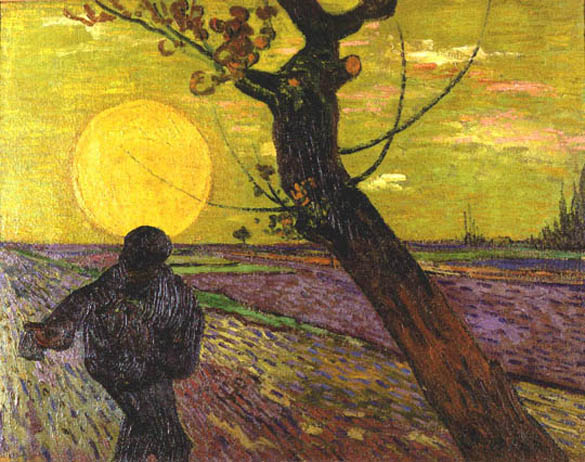The Son of Man will send his angels, and they will collect out of his kingdom all who cause others to sin and all evildoers. They will throw them into the fiery
furnace, where there will be wailing and grinding of teeth.
This Sunday’s Gospel is one of those Gospels where, after the priest proclaims, ‘The Gospel of the Lord’, the congregation half-heartedly responds from memory: ‘Praise to Lord Jesus Christ’, when really everyone is thinking, ‘Did Jesus just say what I thought He said? Or, Whoa, scary Jesus!’ In can seem that way if we do not understand the context and arc of Jesus’ message in this passage.
Today’s Gospel, like the Parable of the Sower last Sunday, details Jesus’ description of The Kingdom of God. Earlier in Matthew’s Gospel we hear about the Kingdom of God from John the Baptist, Repent, the Kingdom of God is at hand and in Jesus’ lesson on how to pray, Thy Kingdom come, Thy will be done on earth as it is in heaven. Notice that the predicate of the sentence is the earth, not some other-worldly escape, as though the Christian’s job is to ‘put up’ with earth before we get to leave! The message of Jesus, signified in His own Incarnation, becoming man, is that God is here. God’s kingdom is here as it is in Heaven.
It is within this context that we should re-read The Parable of the Weeds among the Wheat. We are infinite beings living in a finite world; our actions have eternal consequences and sometimes this can seem scary because there are real consequences for better and for worse.
When we live our lives as followers of Christ we create a space within our hearts for God to dwell (for the seed to grow). When the time comes for us to pass out of this earthly life God’s presence within us will sprout up and bear the fruit of eternal joy! How amazing that every little God-filled thought, action and word in this life are transformed through God’s grace to bring us to unearned eternal bliss with God!
Yet unlike planting a seed in the ground we have the opportunity to choose to grow or not. God did not create us to be robots; He honors our free will to love Him. If we choose not to create that space within ourselves for God’s presence to dwell or grow, or to inhibit that growth in others, then not out of revenge but in spite of His love for us He allows us to freely choose a life without Him. I cannot imagine how painful that must be. Like a crying infant taken away from his mother even more do we need God to hold us and nourish us.
God does not weed out those who are negative influences in our lives but instead honors his covenant with us and freely allows us to choose our own path, hoping that we will join Him in sowing the seeds of love to build His Kingdom on earth as it is in Heaven.
Small Beginnings, Great Endings:
- The tiny mustard seed grows into a bush that can be nine feet tall.
-The small amount of yeast mentioned by Jesus is mixed with 50lbs of flower to make it leaven.




